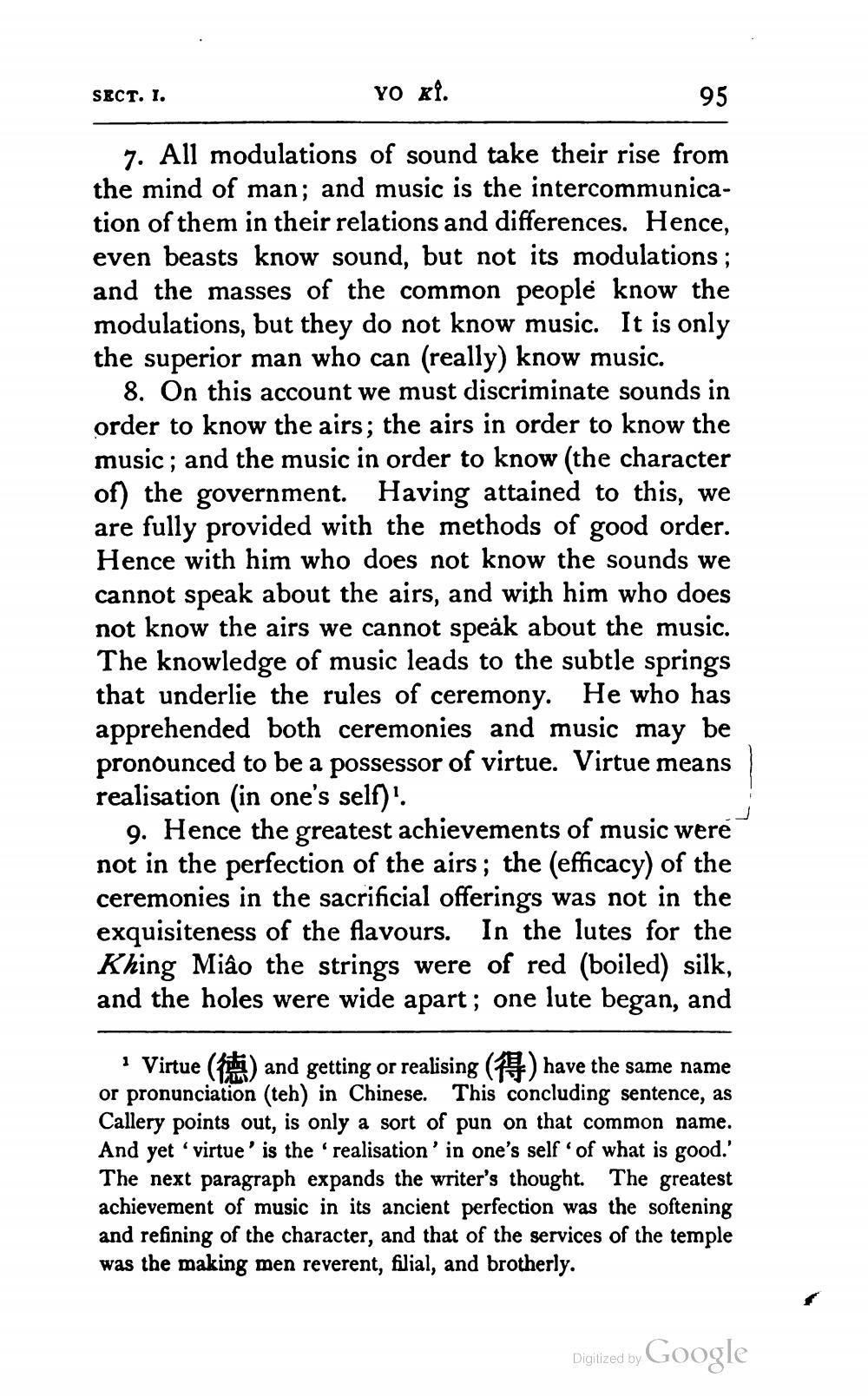________________
SECT. I.
Yo xi.
7. All modulations of sound take their rise from the mind of man; and music is the intercommunication of them in their relations and differences. Hence, even beasts know sound, but not its modulations ; and the masses of the common people know the modulations, but they do not know music. It is only the superior man who can (really) know music.
8. On this account we must discriminate sounds in order to know the airs; the airs in order to know the music; and the music in order to know the character of) the government. Having attained to this, we are fully provided with the methods of good order. Hence with him who does not know the sounds we cannot speak about the airs, and with him who does not know the airs we cannot speak about the music. The knowledge of music leads to the subtle springs that underlie the rules of ceremony. He who has apprehended both ceremonies and music may be pronounced to be a possessor of virtue. Virtue means realisation (in one's self)'.
9. Hence the greatest achievements of music were not in the perfection of the airs; the (efficacy) of the ceremonies in the sacrificial offerings was not in the exquisiteness of the flavours. In the lutes for the Khing Miâo the strings were of red (boiled) silk, and the holes were wide apart; one lute began, and
1 Virtue ( ) and getting or realising (1) have the same name or pronunciation (teh) in Chinese. This concluding sentence, as Callery points out, is only a sort of pun on that common name. And yet virtue' is the realisation' in one's self of what is good.' The next paragraph expands the writer's thought. The greatest achievement of music in its ancient perfection was the softening and refining of the character, and that of the services of the temple was the making men reverent, filial, and brotherly.
Digitized by Google




